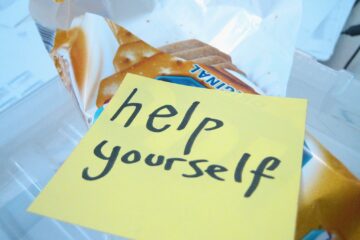This has been taken from the website called Not Milk. I have broken the letter up as it’s quite long and very rich in terms of what we need to know. Small doses may help in terms of taking it in. Thus I’m going to produce a series of posts based on this letter. Watch this space
“MILK” Just the word itself sounds comforting! “How about a nice cup of hot milk?” The last time you heard that question it was from someone who cared for you and you appreciated their effort.
The entire matter of food and especially that of milk is surrounded with emotional and cultural importance. Milk was our very first food. If we were fortunate it was our mother’s milk. A loving link, given and taken. It was the only path to survival. If not mother’s milk it was cow’s milk or soy milk “formula”–rarely it was goat, camel or water buffalo milk.
Now, we are a nation of milk drinkers. Nearly all of us. Infants, the young, adolescents, adults and even the aged. We drink dozens or even several hundred gallons a year and add to that many pounds of “dairy products” such as cheese, butter, and yogurt.
Can there be anything wrong with this? We see reassuring images of healthy, beautiful people on our television screens and hear messages that assure us that, “Milk is good for your body.” Our dieticians insist that: “You’ve got to have milk, or where will you get your calcium?” School lunches always include milk and nearly every hospital meal will have milk added. And if that isn’t enough, our nutritionists told us for years that dairy products make up an “essential food group.” Industry spokesmen made sure that colourful charts proclaiming the necessity of milk and other essential nutrients were made available at no cost for schools. Cow’s milk became “normal.”
You may be surprised to learn that most of the human beings that live on planet Earth today do not drink or use cow’s milk. Further, most of them can’t drink milk because it makes them ill.
There are students of human nutrition who are not supportive of milk use for adults. Here is a quotation from the March/April 1991 Utne Reader:
If you really want to play it safe, you may decide to join the growing number of Americans who are eliminating dairy products from their diets altogether. Although this sounds radical to those of us weaned on milk and the five basic food groups, it is eminently viable. Indeed, of all the mammals, only humans–and then only a minority, principally Caucasians–continue to drink milk beyond babyhood.
Read more about this in future blog posts. They wont have huge gaps between them so it wont be long. If you don’t want to keep checking this website, sign up here and receive notifications about new posts.



3 Comments
Ajay Rajani · August 17, 2008 at 2:49 am
Thanks Heena for this! I sent it to my uncle in Canada who has been a Pediatrician for 40 over years and he wrote:
Hello Ajay,
Many thanks for that interesting article on milk consumption in the western world. I agree with the writer that the Dairy & Beef industry lobbyists have brain-washed the public through sleek advertisements and strong political influence on respective governments. As a Paediatrician my recommendation to the mothers is that they breast-feed as long as possible in the first year of life (cow’s milk is for the calf!). If for some reason not able to breast-feed give formula as second best choice. I advise cow’s milk only after the first year and limit consumption volume to 300 to 400 mls per day and concentrate on giving healthy table foods for most calories. We recommend whole ( full fat ) milk in the second year of life and then decrease fat content over the next couple of years to zero fat content. We strongly recommend veggies & fruits ( not sweetened juices because of sugar & lack of fibre ) and whole grain diet for plant-based protein. Alas with fast food influence and busy working parents our message often gets lost! Please send me the web-site of that article on my e-mail address. Thank You. Love Kantikaka.
Heena Modi · August 18, 2008 at 9:03 am
Excellent! Thanks for this. I’ve created a blog bases solely on your uncle’s comments.
Please let him know there’ll be a series of articles coming up which will be about the issues around milk.
Thanks again Ajay
Heena
Heena Modi · September 18, 2008 at 5:22 pm
The Ethical Consumer (http://www.ethicalconsumer.org/FreeBuyersGuides/fooddrink/yoghurtdairysoya.aspx) reports that: –
Health issues
Dairy products have been linked to osteoporosis, heart disease, cancer, diabetes and a range of allergy related problem.
Despite the dairy industry’s claims that milk is an essential source of calcium, a diet high in dairy products may leach the body of more calcium than it provides.
Alternative calcium sources include green leafy vegetables such as broccoli and nuts and seeds such as brazil nuts and sesame seeds.
So is it good for us?
Comments are closed.